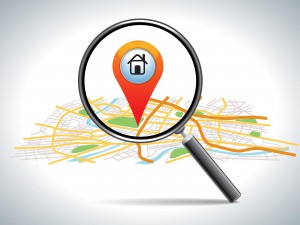Home insurance is unfortunately one of those financial products with a reputation for being a bit “exxy”. 
However, what most people don’t realise is that an insurance policy is a small price to pay in order to avoid dealing with far more expensive costs later on.
That being said, it’s easy to fall into the trap of paying far too much for cover you don’t even need.
So what do you need to know about cutting your home insurance costs to get the best bang for your buck?
Check your cover
When assessing your policy, it’s important to check two things:
- That you’re paying for the cover that you do need
- That you aren’t paying for the cover that you definitely don’t need
Paying for the cover that you need ensures that when it comes time to claim, there’s no chance of your insurer knocking you back and saying that you didn’t actually have the right cover in the first place.
It’s a safety net that ensures that you don’t get caught out without protection, which will save you a lot in the long-run.
You also need to make sure that you aren’t paying for cover that you don’t need.
For example, if you live next to the ocean in suburbia, bushfire risks are probably far lower than what you’d face if you were rurally located.
There probably isn’t a need (depending on your situation) to have a policy with a high amount of bushfire cover if you’re in this situation.
Assess what you’re paying for.
If you’re near an ocean, then there is a high chance of storm surges, so you should look into a policy that provides cover for flooding and storm surging.
Know the terminology
Make sure you understand the ins and outs of your policy.
Research shows that only half of all Australians read the PDS of the financial products that they sign up for.
Understanding the fine print is key to avoiding unknown costs or exclusions.
If you don’t know what’s excluded from your policy, you could find that when it comes time to claim, you may not be approved.
This can be extremely devastating and frustrating, and it means that you’ve been paying for an insurance policy that has ultimately not helped you out at all.
Think about where you live 
If you’re not thinking about where you live when you take out your policy, your insurer definitely is.
Insurers look at your exact address and every factor that could affect it.
Whether it’s natural disasters, the crime rate or even the proximity to public transport or pedestrian thoroughfares, all of these factors can influence the amount that you pay for your home insurance.
Obviously, it’s not a deciding factor, but if you’re planning on moving, you might want to take some of these considerations into account.
Up your security
In general, you should have as much security in your home as possible, but even more so if you’re trying to lower your insurance costs.
Even just investing in deadbolts can help you prove to your insurer that your home is secure.
However, it’s important to do more than that.
Having an alarm system, a gate and even security cameras can help lower your home insurance costs.
Jump online 
Don’t just take your insurer’s word as law.
You can compare policies online for any insurance type, so make sure to do your research by using a comparison website.
You can also look into the comprehensiveness of a policy as well as the ins and outs of its fine print.
Shopping around online is also a good way to check other customers’ experiences with that insurer as well.
Richard Laycock is an Insurance expert for finder.com.au

No comments:
Post a Comment